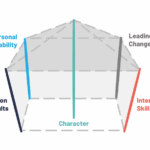Why IS it so hard to change our mindset? Why is it important?
“Mom, I really dislike avocados.”
This came out of my 10-year old’s mouth last week, much to my surprise. What did he mean, he didn’t like avocados, I asked. Just the other night he ate chips and guacamole. And I regularly add avocados to our smoothies with very few complaints.
His response was matter of fact and very firm: “I changed my mind The taste is OK, but I don’t like the texture – and there are other things I would rather eat.”
No drama. No ego. No pride or concern about possibly being “wrong” about something he once professed to enjoy. Quite simply, he put some time, thought, and analysis into the avocados, and discovered he had changed his mind.
Oh, if only we could all operate like that, in our overly complicated adult world, fraught with politics, emotion, bias, and fear of change. It got me wondering…
Why IS it so hard for us to change our mindset?
It can be a tough pill to swallow, taking a step back and questioning a personal belief. As humans, we are hard-wired to surround ourselves with like-minded articles, people, social media feeds that confirm our beliefs. To essentially create our own mini-radicalized echo- chambers.
But what happens when an alternative or differing view is presented with facts and evidence? Do we view the new ideas with an open mind and appreciate the value, or shut it down? Recently, my observation is “shut it down” is the most frequent answer, and I was curious as to why. After a little research, it makes perfect sense for three concrete reasons:
First, neuroscience tells us our brains are designed for efficiency. Our brains grab onto our stubborn beliefs and biases to create a set of rules known as heuristics for quick decision making. These “rules” limit our openness to new evidence, ideas or anything that might challenge our beliefs.
This leads to the second reason – we are human. Emotional, imperfect, complex and irrational. Facts alone cannot speak to our belief system, but emotions and compassion can, since emotions play a major role in how we process information.
Which brings us to the third reason – cognitive biases. There are three core types of cognitive bias: Anchoring, Confirmation, and Availability. It’s important that we learn about them, in order to be more aware when they might be impacting our openness to new information. Here is a quick breakdown of the three types:
Anchoring Bias
We use prior beliefs when we make decisions or assess our beliefs. Anchoring bias occurs when we rely disproportionally on previous information. As a result, when learning new information, it is still anchored to our original beliefs. This causes us to undervalue new evidence, which prevents us from challenging our current beliefs.
Confirmation Bias
We are all prone to rejecting information that clashes with our current beliefs. This means that any new evidence contradicting these prior beliefs is underweighted. Be careful when assessing new information since we are wired to miss the evidence that contradicts our previous beliefs.
Availability Bias
We tend to believe that the first examples that we recall are highly representative of the world. Imagine, after a few of your Instagram posts go viral, that you want to quit your day job to go “all in” on becoming a social media influencer. You quickly think about the seemingly effortless overnight success of the Kardashians and others like them around the world. As a result, you vastly overestimate your chances of succeeding, even though your logical brain is screaming this is a path to failure. Availability bias makes it harder to quit a harmful belief or behavior. When combined with the confirmation bias, look out! It’s easy to see why stubborn beliefs are so difficult to change.
Why is it important to learn to change your mind? Because this is how we learn to let go of limiting beliefs and assumption, and explore growth, new relationships and careers, life goals, and experiences. It is the path to critical thinking, fulfillment and enriching dialogue, deeper relationships, and self-improvement.
Change your mind, change your life.







